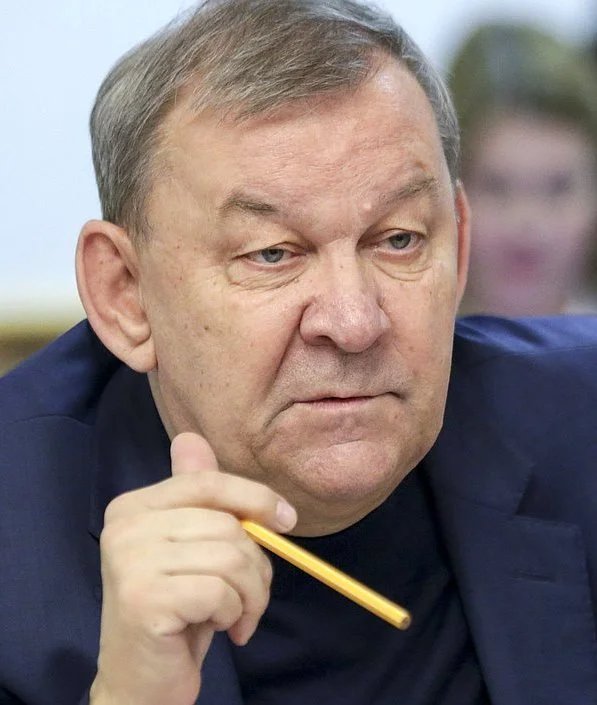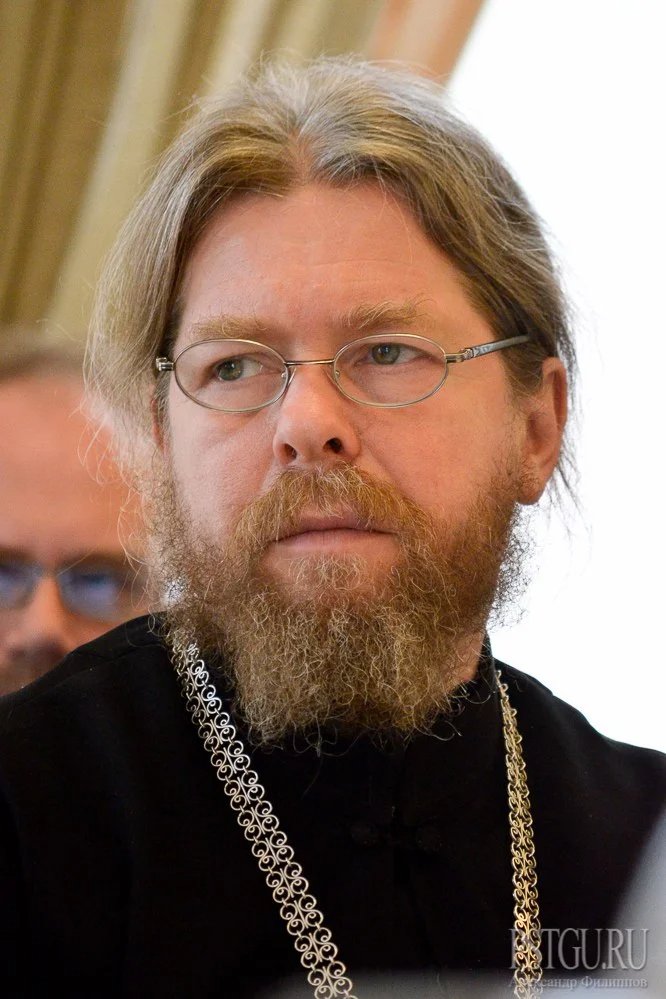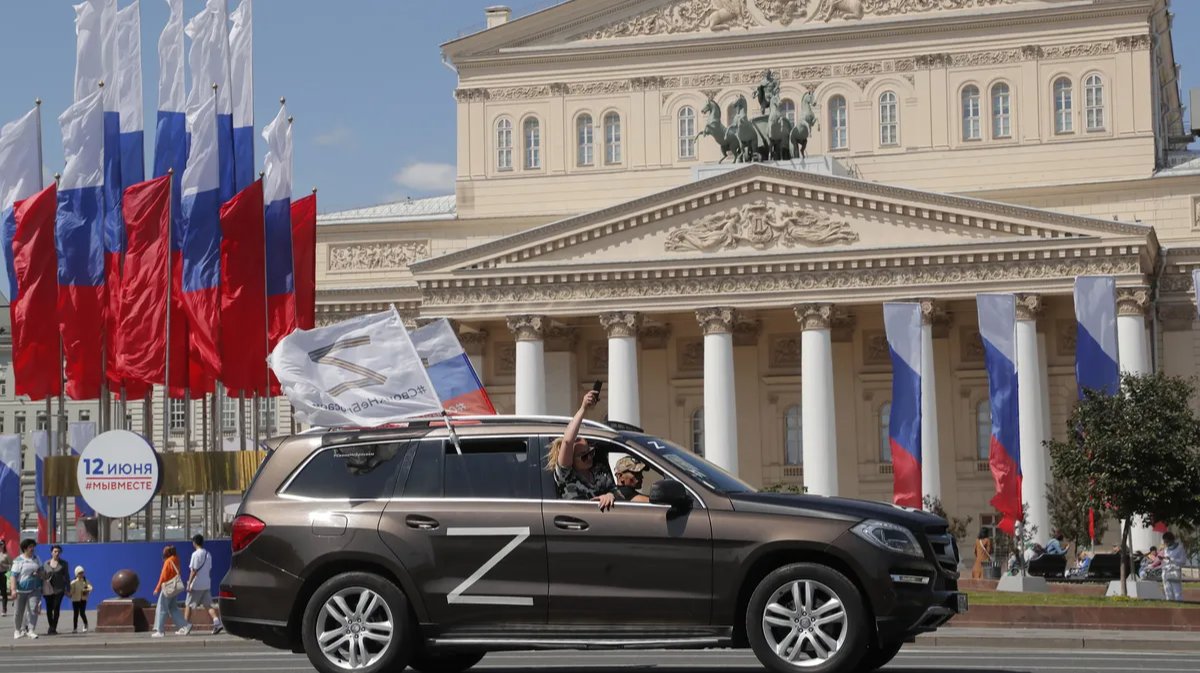When the director of Moscow’s world famous Bolshoi Theatre, Vladimir Urin, admitted last week that any creative talent who spoke out critically against the war in Ukraine could expect to see their name removed from the theatre’s programmes, the press quickly seized on the comment as proof that military censorship had been instituted in Russia.
Strictly speaking, however, to qualify as true censorship, the Bolshoi would have to change the lines of a play, not a programme. What Urin described, and what he and many others in Russia’s cultural sector have been practising with great success for the past year and a half is something more akin to ostracism.

Vladimir Urin. Photo: Wikimedia Commons, CC BY 4.0
Excluding an outspoken person from an important professional space is a highly symbolic gesture and one with plenty of precedent in contemporary Russia. Consider, for instance, the fate of Kirill Serebrennikov, a theatre director well-known for his liberal beliefs whose transgressive work ultimately led to him being found guilty of embezzlement and given a three-year suspended sentence in 2020. In November, when the Moscow Art Theatre printed a new playbill for Serebrennikov’s production of Alexander Ostrovsky’s The Forest, which it has in its repertoire for 18 years, Serebrennikov’s name was redacted from the credits, which now read “Director: DIRECTOR.”
In other cases, the means of exclusion is more technologically advanced. The actor Maxim Vitorgan, an outspoken critic of the war in Ukraine, discovered that not only had his name been removed from the credits of the Russian TV show Contact, his character had been replaced by a deep fake in each episode too.
Technically, censorship is forbidden by the Russian constitution. But these new kinds of control are more elusive and harder to define, as they lack clear rules and red lines, and are not controlled by one single entity. The connection between “violation” and “punishment” isn’t always clear either, with each government agency practising its own subtle variant of the practice, according to its level of fear and understanding of the political situation.
High-profile culture, such as performances at the Bolshoi Theatre, is overseen directly by the Ministry of Culture or even the presidential administration itself. In smaller or regional institutions, any number of small-time officials might be involved in supervising the process.
As there is no central office for censorship, as there was in the Soviet Union, no one agency has overall control, meaning there’s nobody obvious to approach to resolve disputes. Should the decision to exclude an artist from Russia’s cultural sphere be made by the minister of culture herself? By her deputy? By someone from the FSB? And how should the decision be formalised? By decree, official order or a discreet arrangement behind the scenes?
So far, it seems that most of these decisions are communicated and actioned through unofficial channels. But a paper trail does exist in some cases – such as the letter Russian Defence Minister Sergey Shoigu sent to Culture Minister Olga Lyubimova in March last year asking that Ukrainian President and former television star Volodymyr Zelensky and Ukrainian producer Alexander Rodnyansky both be “excluded from Russia’s cultural agenda” in order to better “shape” Russian public opinion about the war.
Other new forms of censorship do at least have a basis in law, including the fines for LGBT content that are issued to streaming platforms on an almost-daily basis. But it’s unclear which higher authority controls even these legally instituted rules.
If, for example, the radical nationalist filmmaker Nikita Mikhalkov wanted to include a gay sex scene in one of his movies (to condemn it, naturally), who would have the authority to grant him a dispensation?
Pro-censorship pressure groups such as The Safe Internet League, led by the reactionary Yekaterina Mizulina, have been publicly denouncing citizens for showing insufficient loyalty for over a decade and are a good illustration of self-imposed societal censorship.
But since the start of the war, laws related to censorship – from the ones that criminalise “spreading deliberately false information about the Russian military” to those that punish so-called “gay propaganda” – have been weaponised by members of Russia’s elites to settle scores with each other and to jockey for position.
Some cultural figures, Mikhalkov himself included, remain untouchable (at least for now) and have even been known to act as intermediaries with the powers-that-be for colleagues confused by the lack of clear rules.

Metropolitan Tikhon. Photo: Wikimedia Commons, CC BY-SA 4.0
Anyone interested in the politics of late-stage Putinism ought to read the transcript of a 2020 phone call between Mikhalkov and the bishop often referred to as “Putin’s confessor”, Metropolitan Tikhon. In the call, Tikhon asks Mikhalkov how the Russian Orthodox Church should go about censoring the repertoire of the Moscow Art Theatre, to which Mikhalkov responds by recommending Tikhon simply call the director of the theatre and ask that the play in question (Konstantin Bogomolov’s production of Oscar Wilde’s An Ideal Husband) be excluded from its repertoire.
The play was subsequently removed, only for it to return after former liberal-turned-Putin-apologist Bogomolov personally cut the scenes that had offended the bishop from the production, claiming that both his beliefs and “worldview” had changed.
The world itself is changing too. Laws adopted for one purpose might be used for entirely different ends in years to come. Untouchables such as Mikhalkov and convert apologists in the mould of Bogomolov live with the reality that they too could one day suddenly find their circumstances have changed.
Their decision to play by a set of unwritten rules can’t quite be termed collaboration: it’s more a case of them placing a bet. The reward is huge, but so are the risks. And if today’s self-regulated censorship becomes something more open and publicly discussed in the future, neither the risk nor the reward will be diminished.
Join us in rebuilding Novaya Gazeta Europe
The Russian government has banned independent media. We were forced to leave our country in order to keep doing our job, telling our readers about what is going on Russia, Ukraine and Europe.
We will continue fighting against warfare and dictatorship. We believe that freedom of speech is the most efficient antidote against tyranny. Support us financially to help us fight for peace and freedom.
By clicking the Support button, you agree to the processing of your personal data.
To cancel a regular donation, please write to [email protected]

